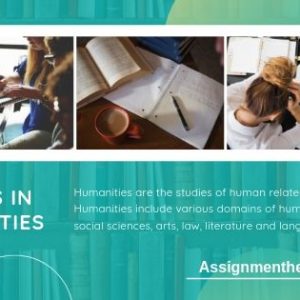What Is Moral Theology? How to Live a Moral Life
Catholic moral theology serves as a guiding framework, offering principles and values that foster a harmonious existence in alignment with the teachings of Christ. Its aim is to navigate the intricacies of life, aiding adherents in making decisions consistent with their faith. However, the application of these principles in real-life scenarios is often a challenging and multifaceted endeavor.
At its core, Catholic moral theology delves into multifarious and profound subjects. It extends its discourse to encompass the complexities of human life, spanning from the intimate spheres of marriage and sexuality to broader societal domains such as healthcare, social justice, wealth distribution, and ethical conduct in businesses. Its teachings navigate these intricate facets, presenting a moral compass to guide believers in their choices and actions.

The study of moral theology not only equips individuals with the tools to comprehend the nuances of the Catholic tradition but also empowers them to share and communicate these teachings with others. It delves into the depth of moral principles, fostering an understanding of how these beliefs intersect with everyday life challenges. Furthermore, it provides a set of ethical guidelines that encourage ethical conduct, fostering a sense of community and responsibility among followers.
Living a moral life according to Catholic moral theology involves grappling with the complexities of these teachings and applying them in practical contexts. It necessitates thoughtful consideration, discernment, and a deep understanding of the underlying principles. By engaging with these principles in everyday life, individuals aim to uphold the moral fabric of their faith and contribute positively to the world around them.
What Is Moral Theology?
Moral theology stands at the intersection of theology and ethics, applying foundational Christian beliefs to the complexities of our contemporary world. This branch of theological study isn’t confined to lofty theological debates; rather, it profoundly influences the everyday lives of believers. It serves as a guiding compass, shaping their decisions, actions, and responses to a myriad of challenges, both significant and trivial. In essence, moral theology furnishes a set of guiding principles derived from God’s teachings to facilitate a life aligned with divine will.
The ability to engage in moral contemplation is considered a divine endowment. God bestowed upon humanity the faculties of reason and intellect, enabling comprehension of the intricate fabric of the world. Simultaneously, the divine gift of free will allows individuals to discern and choose what they perceive as true and virtuous. Within this framework, moral theology establishes a criterion for discerning truth and goodness as perceived through the lens of God’s divine perspective.
In the realm of Catholic moral theology, the focus shifts from merely determining actions or beliefs to a more profound inquiry into the essence of one’s character. Embracing virtue ethics, the fundamental question shifts from “What should I do or believe?” to “Who am I becoming through my actions and affections?” This introspective approach fosters a deeply personal engagement with faith, empowering individuals to shape their decisions and choices in alignment with their evolving moral character, thus nurturing an intrinsic bond with their faith, rather than being solely influenced by external factors.
Teachings of Moral Theology
Moral theology, whether within a religious sphere or beyond it, encapsulates three core facets within any moral act: the objective act itself, the subjective intention behind it, and the contextual elements, including the where, when, how, and with whom the act occurs, along with its consequences. In Catholic morality, these elements form a framework through which actions are evaluated against the teachings of Christ, defining whether they align with righteous principles or deviate from them.
To be deemed morally virtuous, both the actions and intentions must harmonize with the moral code. A morally negative intention inherently leads to a wrong action, while a positive intention cannot result in an objectively negative action. Yet, this doesn’t grant free rein to act as one wishes under the pretext of good intentions. Certain actions are fundamentally unethical, regardless of intention or circumstance. For instance, acts like murder, deceit, adultery, or actions that jeopardize human well-being are universally considered wrong.
Catholic moral theology draws its essence from pivotal concepts such as freedom, truth, natural law, human law, and the human conscience—this innate sense of discerning what is right and good as willed by God. It encompasses principles derived from divine revelation, Scripture interpretation, and the Church’s tradition, shaping how individuals engage with these concepts and how they respond to them.
These moral principles aren’t arbitrary; they are divine endowments to humanity, epitomized by the Ten Commandments. Carried down from Mount Sinai, these tablets laid out an ethical code for God’s followers, unmistakably outlining behaviors that would transgress this code. While explicitly stated in ten principles, they inherently suggested that sins like envy, murder, lust, and idolatry would lead to a spiral of further transgressions and a departure from God’s grace.
Teachings of Moral Theology
Moral theology is a realm within theological studies that encompasses three core elements inherent to all moral acts—namely, the objective act itself, the subjective intention behind it, and the comprehensive contextual aspects surrounding the act, encompassing where, when, how, and the resulting consequences. In the Catholic faith, this construct provides a framework for discerning the moral alignment of an act—whether it is right or wrong, in accordance with Christ’s teachings, or divergent from the established moral code.
For an action to be considered morally good, it necessitates harmony between both the action itself and the intention behind it, in compliance with the moral code. In essence, a morally flawed intention inherently leads to an unethical action, while a noble intention cannot manifest as an objectively wrongful action. Nevertheless, this doesn’t grant unrestricted permission to act solely based on well-intentioned motives. There exist fundamental ethical wrongs, irrespective of intention or circumstance, such as murder, adultery, deceit, or any actions jeopardizing human well-being.
Catholic moral theology finds its foundational principles rooted in concepts like freedom, truth, natural law, human law, and the human conscience—an innate ability to discern what is good and right, as intended by God. The moral structure established upon these principles—how individuals engage with or respond to these concepts—is shaped by divine revelations, Scriptural interpretation, and the tradition of the Church.
These moral principles, including the revered Ten Commandments, represent divine gifts to humanity. Delivered by Moses from Mount Sinai, these tablets engraved an ethical code for God’s followers, explicitly outlining behaviors violating this code. While explicitly stated as ten principles, they implied that transgressions such as envy, murder, lust, and idolatry would perpetuate further wrongdoing, leading to a spiritual disconnect from God’s grace.
Christian morality, rooted in Old Testament beliefs, pivots towards fostering positive actions rather than solely prohibiting negative ones. Christ bestowed upon his disciples the authority to heal, cast out demons, and propagate God’s word—an endorsement to perpetuate his love. Disciples earnestly endeavor to live out this love-centered mandate, relying on both Scripture and tradition to offer moral guidance that addresses modern challenges.
Principles of Moral Theology
Moral theology, especially within the Catholic tradition, has continuously evolved and expanded over time, adapting to the ever-evolving world and its ethical dilemmas. It’s a crucial notion to comprehend that the inherent morality of an action isn’t solely dictated by religious authorities like cardinals, bishops, pastors, or even the Pope. Instead, it rests upon a Catholic individual’s duty to craft their moral judgments based on several critical factors:
- Basic Moral Teachings of Christ: Central to moral discernment is an examination of Christ’s teachings and the teachings of his disciples that bear relevance to contemporary issues. Reflecting critically on their intended meanings provides foundational insight.
- Related Developments: Understanding how the Church’s guidance on specific issues has evolved over time is essential. Changes or adaptations in moral guidance through the centuries offer context and perspective.
- Human Nature: Evaluating moral issues in light of fundamental human existence is crucial. It involves assessing whether our decisions, actions, behaviors, or attitudes align with God’s intended design for humanity, created in His image.
- Human Dignity: Central to moral discernment is the consideration of whether our actions or decisions reflect respect for the inherent dignity of all individuals, acknowledging that every person is made in the image of God.
- Common Good: Assessing how specific actions contribute to or detract from the collective well-being of humanity is pivotal. Decisions should aim to foster the greater good and not undermine it.
- Freedom: Evaluating actions to ascertain whether they enable individuals to exercise their free will in harmony with their nature, allowing for personal growth in accordance with God’s plan.
In the 21st century, being open to the Church’s evolution in its moral teachings while maintaining respect for received traditions is crucial. Beyond religious affiliations, everyone engages in decision-making influenced by their moral compass daily. To sharpen moral acumen and engage critically with personal actions and words, seeking out diverse resources such as books, podcasts, videos, and media discussing contemporary morality and ethics proves invaluable.
Challenges to Moral Theology
Catholic moral theology faces persistent challenges, notably in navigating issues absent from explicit scriptural directives. For instance, complex contemporary concerns such as racism, contraception, or gender identity lack explicit scriptural mentions on the right or wrong approaches. While the Church may provide new guidance, followers might grapple with reconciling lifelong perceptions or ethical codes with evolving teachings.
The emergence of new papal statements or reforms, like Vatican II, could prompt skepticism among Catholics, implying the Church is succumbing to societal pressures. However, these perceptions often overlook the meticulous reasoning, scriptural analysis, and deliberation that underlie the Church’s moral decisions, fundamentally rooted in moral theology’s blueprint.
Additionally, adherents may face internal conflicts when confronted with Church guidance challenging deeply entrenched beliefs or lifestyles, particularly in sensitive domains like sexuality, abortion, gender, and medical research. This inner moral struggle often arises due to Western inclinations that prioritize personal autonomy over tradition or human law over spiritual guidance. Navigating this divergence between societal laws and personal moral convictions underscores a significant contemporary challenge in Catholic moral theology, contributing to societal tensions.
Crucially, the Church shoulders the responsibility, shared by each disciple, to articulate Catholic moral teachings in a manner that educates and empowers without oppressing. This approach aims not to dictate but to guide ethical decision-making, encouraging individuals to exercise informed and ethical free will.
How to Live a Moral Life
Living a moral life within the context of Catholic teachings involves a nuanced approach to embodying principles in various spheres of life. These fundamental guidelines, rooted in the essence of Catholic morality, pave the path to aligning personal conduct with God’s teachings across diverse settings—be it work, home, church, or the community.
- Love as the Bedrock: At the core of Catholic morality lies love—a multifaceted concept encompassing divine love, love for God, one’s neighbors, and all of creation. By nurturing a life guided by love, individuals align with moral virtues, fostering an existence deeply rooted in the divine.
- Mercy and Patience: Embracing diversity in moral perspectives demands exercising empathy and patience. Encountering contrasting moral codes shouldn’t be a battleground for conversion; instead, it’s an opportunity to demonstrate kindness and compassion. Extend solidarity to those navigating moral changes, fostering a supportive environment for growth.
- Using Morality Wisely: Moral teachings should never serve as tools for oppression but as beacons of enlightenment. They should educate, empower, invite, and foster understanding, rather than instigate divisiveness or impose superiority.
- Embodiment of Virtues: The virtues bestowed by God—generosity, fortitude, purity, compassion, honesty, and self-discipline—act as guiding lights, steering individuals away from sin and immorality. Practicing these virtues and recognizing them in others allows individuals to radiate moral clarity, becoming vessels of divine intention.
- Exploring Moral Theology: Delving deeper into the realms of Catholic moral theology in contemporary contexts opens doors to profound understandings. Programs like the online Master of Theological Studies – Franciscan Theology from the University of San Diego’s Franciscan School of Theology offer unique insights into Catholicism through the lens of Franciscan values, celebrating inclusivity and embracing diverse perspectives.
By internalizing these principles and engaging in ongoing exploration, individuals fortify their moral foundations, enrich their lives, and become conduits of divine teachings, shaping their communities positively.
Citations
Assignment Help. (2023). Theology. https://www.assignmenthelp.net/document/theology-midtermassignment-assignment-/64846b80d908b447db6e280b
Brugger, E. C. (2019). Catholic social teachingiscatholic moral teaching. Catholic Social Teaching, 509–527. https://doi.org/10.1017/9781108630238.022
Carver-Thomas, D., & Darling-Hammond, L. (2019). The trouble with teacher turnover: How teacher attrition affects students and Schools. Education Policy Analysis Archives, 27, 36. https://doi.org/10.14507/epaa.27.3699
Haker, H., & Greening, M. (2020). Towards a critical political ethics: Catholic Ethics and Social Challenges. Schwabe Verlag.
Iv. Catholic social teaching and the moral dimension of Social Enterprise Management. (2023). Catholic Social Teaching and Social Entrepreneurship, 81–94. https://doi.org/10.13109/9783666500558.81
Stuart-Buttle, T. (2019). From moral theology to moral philosophy. From Moral Theology to Moral Philosophy, 179–222. https://doi.org/10.1093/oso/9780198835585.003.0005
VOLF, M. (2021). For the life of the World: Theology that makes a Difference. BRAZOS BAKER.


